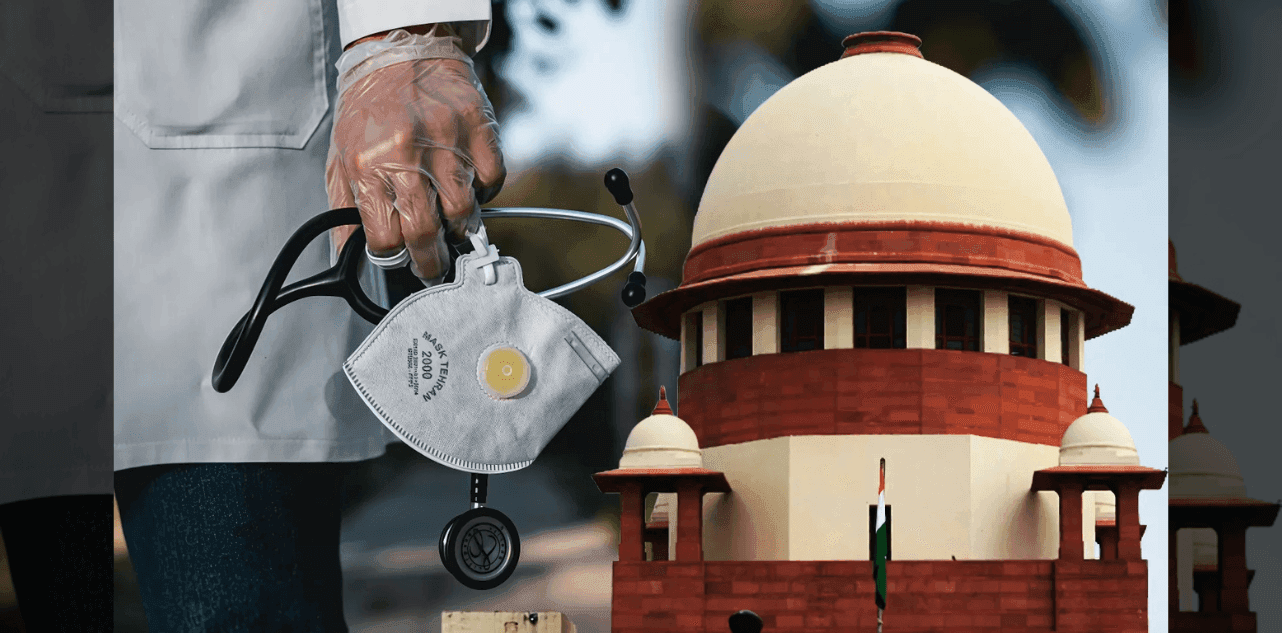Monday 16 February 2026
What SC has to Say Upon 2009 Policy of Uttarakhand
Share

The Indian Supreme Court has has questioned the 2009 Uttarakhand state government policy forcing MBBS students admitted under AIQ-15 from other states to serve five years in rural parts of the nation or pay an exorbitant bond amounting to ₹30 lakh. The policy is denied on factual, legal and moral grounds as well as its applicability and equity to other state-partitioned students.
With a view to stemming the shortage of doctors in rural areas, the state government of Uttarakhand, in 2009, issued a policy under which AIQ MBBS students would have to undertake a commitment to serve rural districts for five years after graduation. Alternatively, they could forego the value of a bond up to ₹30 lakh. Besides that, there was a differential fee pattern too: AIQ-failing students would be charged an annual fee of ₹2.2 lakh and rural service students would pay ₹15,000.
The court of Justice Surya Kant and N Kotiswar Singh questioned the wisdom and justice of this policy. The judges questioned whether language- and culture-restricted non-resident students would be successful when they are deployed to the remote districts of Uttarakhand. The justices cited the problem of such students with regard to communication and delivering quality health services to the said regions.
The Supreme Court made clear that while the intent behind the policy is admirable, it is a prerogative of the Union government to implement such commitment of service to non-resident students. The judges espoused a policy of consistency on a national scale in attempting to put an end to inequality and create equity in the delivery of rural health care requirements between states.
Forced posting of newly graduated rural physicians is not only followed in Uttarakhand. Other states have also implemented it, and the facts are as below:
- Karnataka: The state government decided to modify its mandatory rural service regulation to give more flexibility according to rural hospital staff needs.
- West Bengal: The Supreme Court upheld the state regulation requiring in-service candidates to serve for a minimum of three years in rural or remote regions to be eligible for the benefit of state quota seats in postgraduate medical courses.
- Madhya Pradesh: The High Court directed the state for undue delay in posting doctors to their compulsory rural deputation, assigning the administrative delays
Inserting rural service bonds as mandatory presents it with several legal and moral problems:
- Right to Profession: They also claim that they can waive the right of a person to decide in which location and under what he or she would like to work.
- Forced Labor Concerns: Asking a person to replace service with a huge sum of money penalty is questionable, even to the extent of forced labor.
- Justice and Fairness: Enforcing service obligations on foreign students without national policy would introduce unfair disparate treatment as well as increase accusations of discrimination.
The government has been urged to come up with a fair policy of deployment of medical graduates in rural regions. This would be with the aim of responding to the mandate of fair distribution of healthcare for the welfare and interest of medical physicians. The imprisonment of oneness by the Supreme Court is with the aim of revealing the need of achieving congruence and fairness in offering the health of underdeveloped regions.
The reversal of the policy by the Supreme Court in Uttarakhand is proof of the difficulties in putting rural service into effect for non-resident MBBS graduates. Though enhancing health among rural people is a priority, there are legal, ethical, and operational considerations against which policies have to be weighed. A national policy would be a fair solution where the medical requirement of rural citizens might be fulfilled without infringing upon the rights of medical graduates.
Newsletter
Stay up to date with all the latest News that affects you in politics, finance and more.